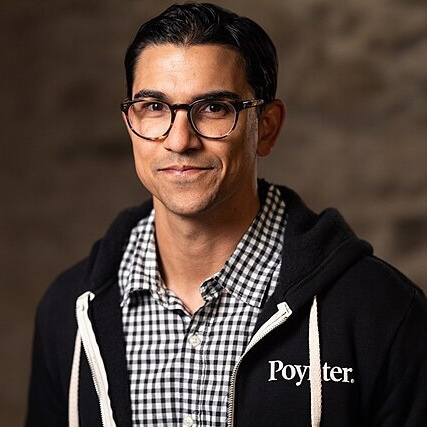PolitiFact and MediaWise are teaming up to debunk misinformation about the coronavirus crisis. To have Coronavirus Facts delivered to your inbox Monday-Friday, click here.
Scott Zalkind was just trying to keep his one-man business safe.
As the owner of Lucky Dog Hot Sauce in Hayward, California, Zalkind relies on farmers markets to make sales. So when the markets started to require face masks, he started shopping around online. With the nationwide shortage from COVID-19, it took a while before he found some that were described as “N95 filter masks.” They were being sold by a Chinese company he had never heard of.
“I found this one site and I thought, ‘It’s double the price but screw it — I need them,’” Zalkind said.
Zalkind purchased a pack of five — the masks cost $10 each plus a $10 shipping fee — and they took three weeks to arrive. The package was thinner than he expected for a set of bulky N95s, which filter out at least 95% of airborne particles.
When he opened it, Zalkind saw that the masks were labeled as KN95s. They had no filter. He complained to the company, but it sent him only a partial refund.
“It’s a straight bait-and-switch,” he said. “I can’t be the only one they did this to.”
He isn’t. Americans have reported more than 32,000 cases of coronavirus-related fraud, according to the Federal Trade Commission. The agency estimates that consumers have lost $3.6 million in online shopping alone, though it’s hard to say with certainty since not everyone files a complaint when they’ve been scammed.
The onslaught of fraud complaints has left federal and state regulators scrambling to stop scammers looking to cash in on the coronavirus outbreak. But with no end to the pandemic in sight, and businesses exploiting social media platforms like Facebook to sell their bogus products, hundreds of thousands of Americans run the risk of being ripped off.
Click here to read the full story.
North Carolina Gov. Roy Cooper claims shopping less risky than worship for COVID-19 transmission
Cooper’s reasoning: Sitting around others for long periods of time is more dangerous than walking by someone in a store. While the world’s top health organizations haven’t compared those exact scenarios, experts generally agree with him. Read the fact-check»
Did The World Health Organization “miss” the coronavirus pandemic?
Experts say the WHO was slow to designate the coronavirus a pandemic and that the organization should have been more skeptical of information it received from China. But accusing the WHO of missing the pandemic altogether goes too far. Get the facts»
Study claims fabric can neutralize coronaviruses
“Electroceutical fabric” was developed in 2017 as an antimicrobial wound dressing. But a new study shows it is also effective at neutralizing coronaviruses. Read the fact-check»
Click here to get this newsletter in your inbox every weekday.
Alex Mahadevan is a senior multimedia reporter at MediaWise. He can be reached at amahadevan@poynter.org or on Twitter at @AlexMahadevan. Follow MediaWise on TikTok.








